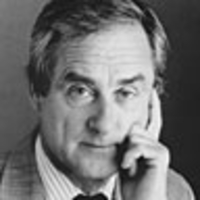Israel's Supreme Court says Shawan Jabarin leads a double life, as a human rights activist who also has a secret association with a terrorist organization. Human Rights Watch says he does invaluable work for peace, but its founding chairman and others consider Jabarin’s appointment shocking. Plus, read letters to the editor responding to this article here and here.
A Palestinian whom Israel’s Supreme Court has described as a “Jekyll and Hyde” of international terrorism has been appointed by Human Rights Watch (HRW) to its advisory board that oversees the sensitive reporting on Arab-Israeli affairs.
It’s a selection that has angered leading figures within HRW. Robert Bernstein, the founding chairman and now chairman emeritus, told The Daily Beast: “I am of course shocked but even more saddened that an organization dedicated to the rule of law seems to be deliberately undermining it.”

Stuart Robinowitz, a retired partner and of counsel to Paul, Weiss, Rifkind, Wharton & Garrison LLP who has led three human rights fact-finding missions for HRW and the American Bar Association, said he is distressed that the appointment seems to have been made without disclosure of all the facts by two HRW executives, Middle East and North African director for HRW, Sarah Leah Whiston, and the executive director, Ken Roth.
The man at the center of the dispute, Shawan Jabarin, runs the human rights organization Al Haq in Ramallah on the occupied West Bank. In 1985 he belonged to a Birzeit University student group associated with the PFLP, indicted as a terror group, by 30 countries including the U.S., the European Union, and Canada. He was convicted of recruiting members for terrorist training outside Israel and served nine months of a 24-month jail sentence.
(The PFLP became notorious in the sixties and seventies for aircraft hijackings. More recently, in 2001 it assassinated the Israeli Minister for Tourism Rehavam Zeevi and has carried out a series of suicide killings: three Israeli civilians died in a bomb of blast at pizzeria in Karnei Shomron, on the West Bank, four in a bombing of the bus station at Geha Junction in Petah Tikva, and three in a bombing in the Carmel Market in Tel Aviv).
Jabarin was convicted of recruiting members for terrorist training outside Israel and served nine months of a 24-month jail sentence.
After he had served his time in jail, Jabarin was engaged as a field worker by Al Haq. He rose to become Director General in 2006 and has been nominated for several international awards but Israel in 1999 banned him from international travel. Jordan, also, has refused him entry on grounds of security. On an Al Haq website Jabarin said he had lost track of the number of times he’d been arrested and detained. He estimated that he’d spent a cumulative eight years in administrative detention and claimed to have been beaten on numerous occasions.
In its 2007 judgment, the Supreme Court found that alongside activity in Al Haq, Jabarin was also a senior figure in the Popular Front terrorist organization: “This petitioner is apparently active as a Dr. Jekyll and Mr. Hyde. In part of his activities, he is the director of a human rights organization, and in another part he is an activist in a terrorist organization which does not shy away from acts of murder and attempted murder which have nothing to do with rights, and on the contrary deny the most basic of all human rights, the most fundamental of fundamental right, without which there are no other rights—the right to life.”
Jabarin petitioned the court again in 2008. The court said it could understand the frustration of Jabarin’s lawyers in not being able to see the intelligence against him, but explained that the judges’ own examination of the classified material had led them to two conclusions: “First, that it is reliable information according to which the petitioner is among the senior activists of the Popular Front terrorist organization; second, the divulging of this material to the petitioner involves the exposure of important sources of information, and thus certain harm to national security.”
The Court examined the case a third time in March 2009. It reported that it had twice tried to find “a creative solution” that gave Jabarin some limited freedom of movement but concluded: “We found that the material pointing to the petitioner’s involvement in the activity of terrorist entities is concrete and reliable material. We also found that additional negative material concerning the petitioner has been added even after his previous petition was rejected.”
The judgment emphasized that the ban was not “punishment” for forbidden activity but “due to relevant security considerations.”
Calls over several days to Whiston were not returned. In a telephone conversation, Roth at first said it was “not true” that Jabarin had been a member of PFLP, then added: “And if he had been, it’s ancient history.” He would not discuss the Supreme Court judgments. In an email, Roth defended the appointment saying Jabarin had had no association with the PFLP or any other political organization since joining the staff of Al Haq in 1987. “The full HRW board noted his long and distinguished service with al Haq for two decades, the international awards he has received and his active assistance to HRW on, among other things, our seminal report attacking Palestinian suicide bombing of civilians.”
Robinowitz, HRW’s former fact-finding leader, said he was confounded that both Roth and Whiston disregarded the judgments of Israel’s Supreme Court and failed to tell the HRW Board of those findings.“Whitson in her written presentation stated that Jabarin had had no association since PFLP since 1987, thereby ignoring actions against him by Israel and Jordan security authorities in 2005 and 2006, and by the Israeli Supreme Court in 2007, 2008, and 2009.”
This is not the first time Jabarin’s fitness for work with HRW has been challenged. In March 2009 HRW issued a press release complaining of the travel ban on Jabarin again without disclosing the judgments of the Supreme Court. This provoked the Vice Chair of HRW, the celebrated film producer Sid Sheinberg (he discovered Stephen Spielberg), to protest the omissions. In a March 17, 2009, email to Roth, Whiston and Jane Olson. Sheinberg wrote that the press release was “misleading by important omission and therefore radically inaccurate.”
James Hoge, the former editor of Foreign Affairs who has only recently assumed the chairmanship of HRW, said: “I am told that Mr. Jabarin has done a good job in recent years promoting human rights in the West Bank. Nobody can give an explanation of why the Israeli high court refused to lift his travel ban three times. We are not alone in thinking he is a good human rights official. Other organizations think highly of him.”
An independent view of the controversy was afforded by Benjamin Pogrund, a Jerusalem journalist and author who has for years worked for peace. He commented that a previous connection with the PFLP was not necessarily damning. “A Palestinian colleague with whom I have cooperated in a lot of dialogue activity was a member and was jailed for it years ago. However, he is now a leading worker on the West Bank for peaceful co-existence. Pogrund said the repeated findings of the Supreme Court were another matter. “Even allowing for the court accepting secret information—which of course is not unique to Israel and is part of the dilemma faced by the West in balancing human rights with fighting terror—this must be treated seriously. The court is independent and much as I dislike its reliance on secret information I acknowledge its integrity and intelligence. So I feel that HRW needs to be ultra-careful and ultra-cautious here.”
Harold Evans, author of two histories of America, just published his memoir, My Paper Chase. Editor at large of The Week, he was editor of The Sunday Times from 1967-81 and The Times from 1981-82, founding editor of Condé Nast Traveler, and president of Random House Trade Group from 1990-97.






